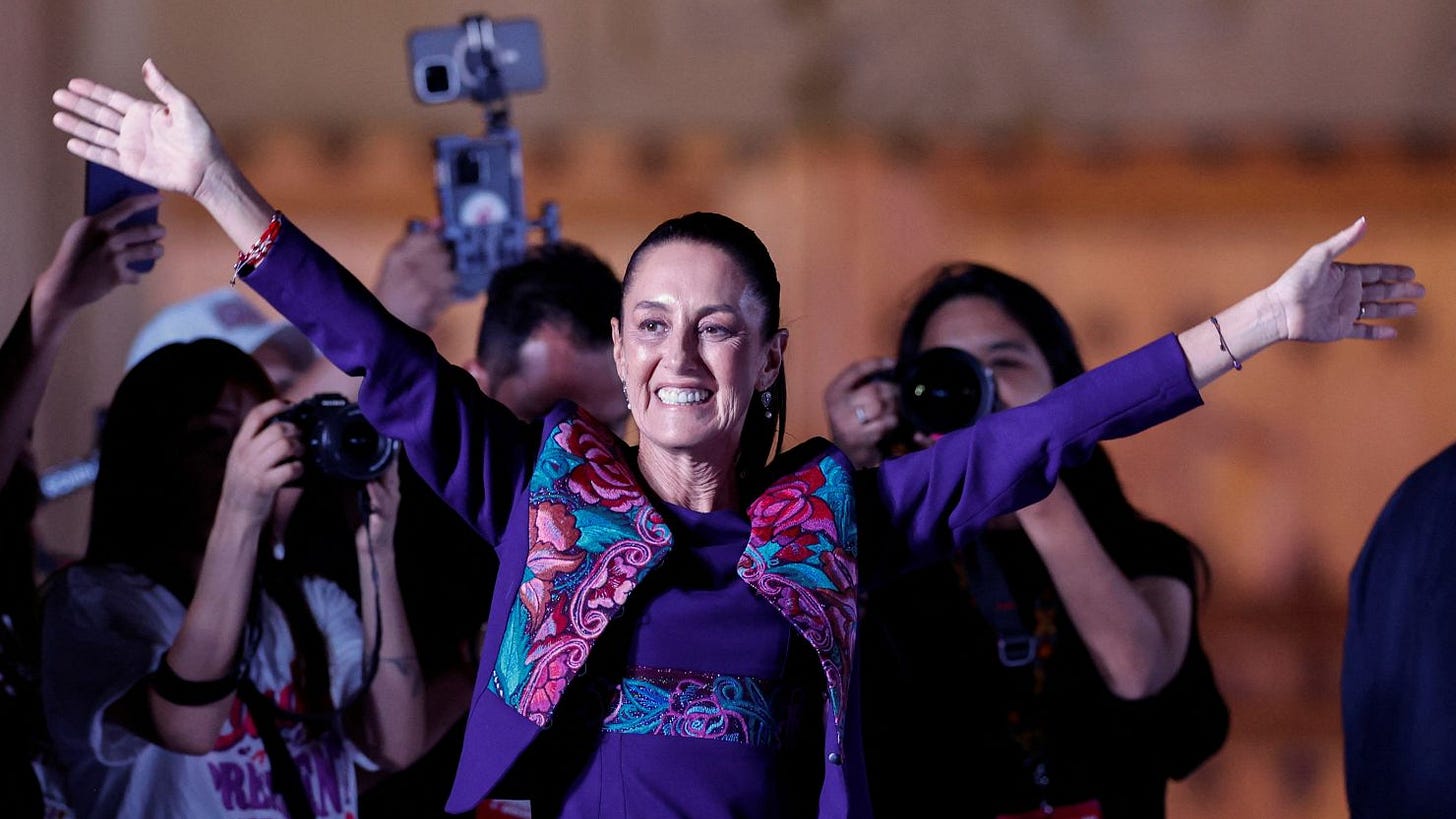Tariff Tussle: Trade War With Mexico?
As of September, Mexico accounted for 15.8% of total U.S. trade.
Mexican President Claudia Sheinbaum expressed confidence this past week that a potential tariff war with the United States can be avoided, despite recent threats from U.S. President-elect Donald Trump to impose sweeping trade penalties on Mexico and Canada.
In a statement earlier, Trump announced that that he would implement a 25% tariff on all imports f…




